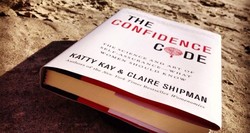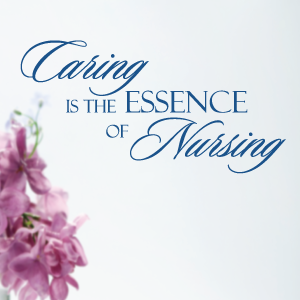
“If a woman is overweight, her size is seen as a negative reflection not just of her physical attractiveness but also of her intellectual capability. She is deemed less organised, less competent, and lacking self-control.” (“The confidence code, p.100)
When I read this it seemed something clicked in my head. Instantly I started writing about dieting and doing a PhD. Three years ago I started my part-time PhD in nursing and about a year ago I decided to lose weight as the BMI scale told me I was obese. This morning I was trying to celebrate having lost 20 kg, as well as trying to relax as feelings of insecurity were once again resurfacing due to stress and work overload. I choose to treat myself to an eggs and bacon breakfast and a proper latte, while continuing my reading of “The confidence code”. However, while my breakfast was served I already felt guilty as I realised I have to lose another 7 kg to finally reach the healthy weight box on the BMI scale. It felt like fate when one of the first sentences I read was the one quoted above, and all my thoughts suddenly came together.
Does my lack of confidence have anything to do with my being overweight for almost my whole life? And if so is that because others think being overweight must mean someone is less intelligent, is it because I believe that, or is it because I think they believe that? I think it might be a bit of everything, as well as a number of other internal and external factors, many of which are mentioned in “The confidence code”. Another difficult aspect is that most people don’t understand why I am insecure, for instance mentioning my MSc or PhD as proof I must be intelligent when I mumble I might not be smart enough to do something. No-one realises how nervous I was two weeks ago to ask my supervisor if she was interested in me doing a post-doctoral fellowship after my PhD, and how I am still afraid she might regret her instant positive answer and change her mind.
Although I and others may not fully understand the complex reasons for insecurity, what I do know is that a lack of confidence will not do me any favours in my pursuit of an academic career. I don’t have a quick fix or a ten step cure for insecurity, and neither does anyone else. Nonetheless, understanding confidence makes it easier to go to battle with it. I believe gaining confidence is a process and although I don't necessarily feel confident I should not let my lack of confidence influence the decisions I make. Whether I lose the last 7 kg or not, whether I fail or succeed, whether my work is perfect or just enough, whether I feel insecure or confident, whether I or others doubt my skills or have faith in them, my decisions will always aim forward and upward. And hopefully somewhere along the way I will have become a confident woman who:
“may have doubts here and there. But she has overcome them enough to take action... Preparation and practice melded with a sense of purpose- the zone of confidence” (The confidence code, p.202-203)
“The confidence code: The science and art of self-assurance- what women should know” by Katty Kay and Claire Shipman
When I read this it seemed something clicked in my head. Instantly I started writing about dieting and doing a PhD. Three years ago I started my part-time PhD in nursing and about a year ago I decided to lose weight as the BMI scale told me I was obese. This morning I was trying to celebrate having lost 20 kg, as well as trying to relax as feelings of insecurity were once again resurfacing due to stress and work overload. I choose to treat myself to an eggs and bacon breakfast and a proper latte, while continuing my reading of “The confidence code”. However, while my breakfast was served I already felt guilty as I realised I have to lose another 7 kg to finally reach the healthy weight box on the BMI scale. It felt like fate when one of the first sentences I read was the one quoted above, and all my thoughts suddenly came together.
Does my lack of confidence have anything to do with my being overweight for almost my whole life? And if so is that because others think being overweight must mean someone is less intelligent, is it because I believe that, or is it because I think they believe that? I think it might be a bit of everything, as well as a number of other internal and external factors, many of which are mentioned in “The confidence code”. Another difficult aspect is that most people don’t understand why I am insecure, for instance mentioning my MSc or PhD as proof I must be intelligent when I mumble I might not be smart enough to do something. No-one realises how nervous I was two weeks ago to ask my supervisor if she was interested in me doing a post-doctoral fellowship after my PhD, and how I am still afraid she might regret her instant positive answer and change her mind.
Although I and others may not fully understand the complex reasons for insecurity, what I do know is that a lack of confidence will not do me any favours in my pursuit of an academic career. I don’t have a quick fix or a ten step cure for insecurity, and neither does anyone else. Nonetheless, understanding confidence makes it easier to go to battle with it. I believe gaining confidence is a process and although I don't necessarily feel confident I should not let my lack of confidence influence the decisions I make. Whether I lose the last 7 kg or not, whether I fail or succeed, whether my work is perfect or just enough, whether I feel insecure or confident, whether I or others doubt my skills or have faith in them, my decisions will always aim forward and upward. And hopefully somewhere along the way I will have become a confident woman who:
“may have doubts here and there. But she has overcome them enough to take action... Preparation and practice melded with a sense of purpose- the zone of confidence” (The confidence code, p.202-203)
“The confidence code: The science and art of self-assurance- what women should know” by Katty Kay and Claire Shipman


 RSS Feed
RSS Feed
